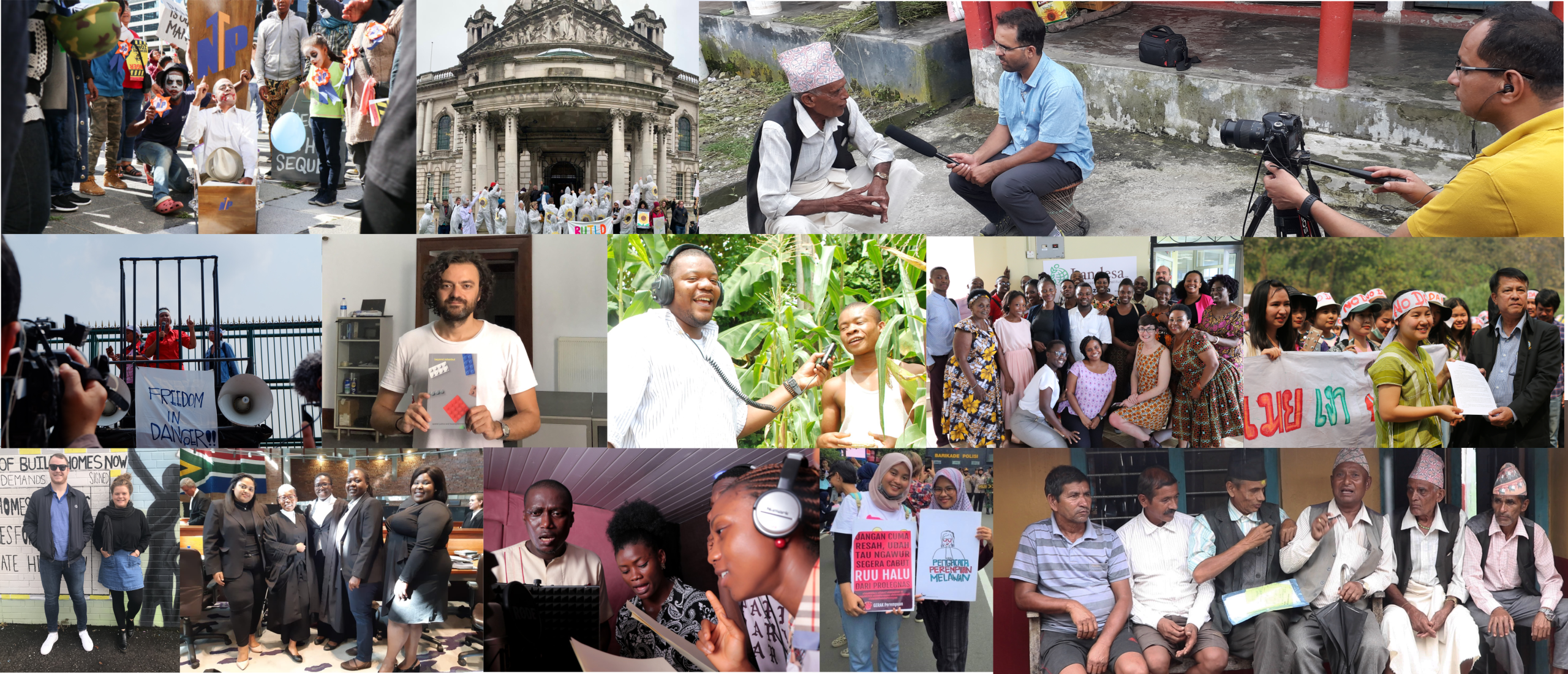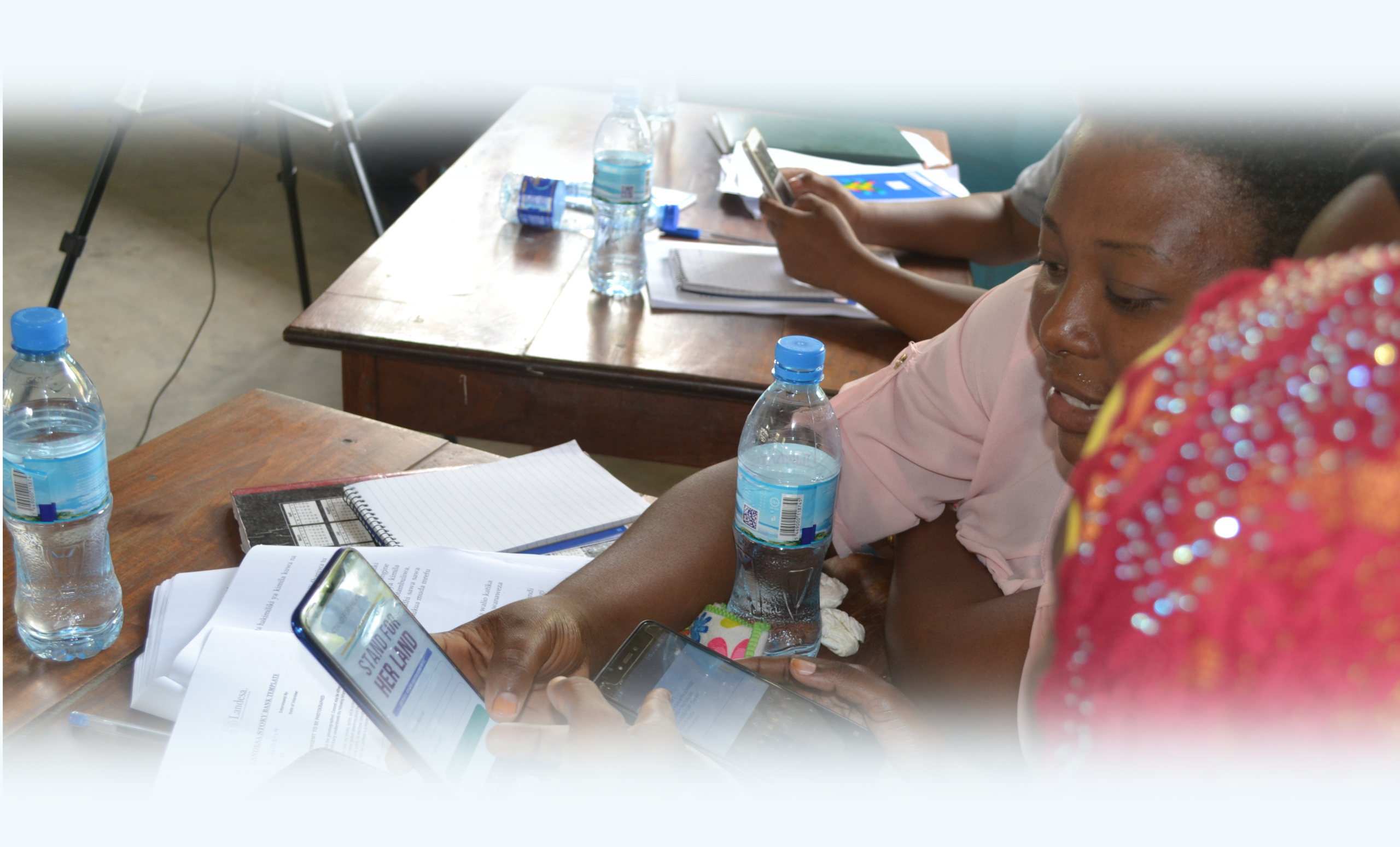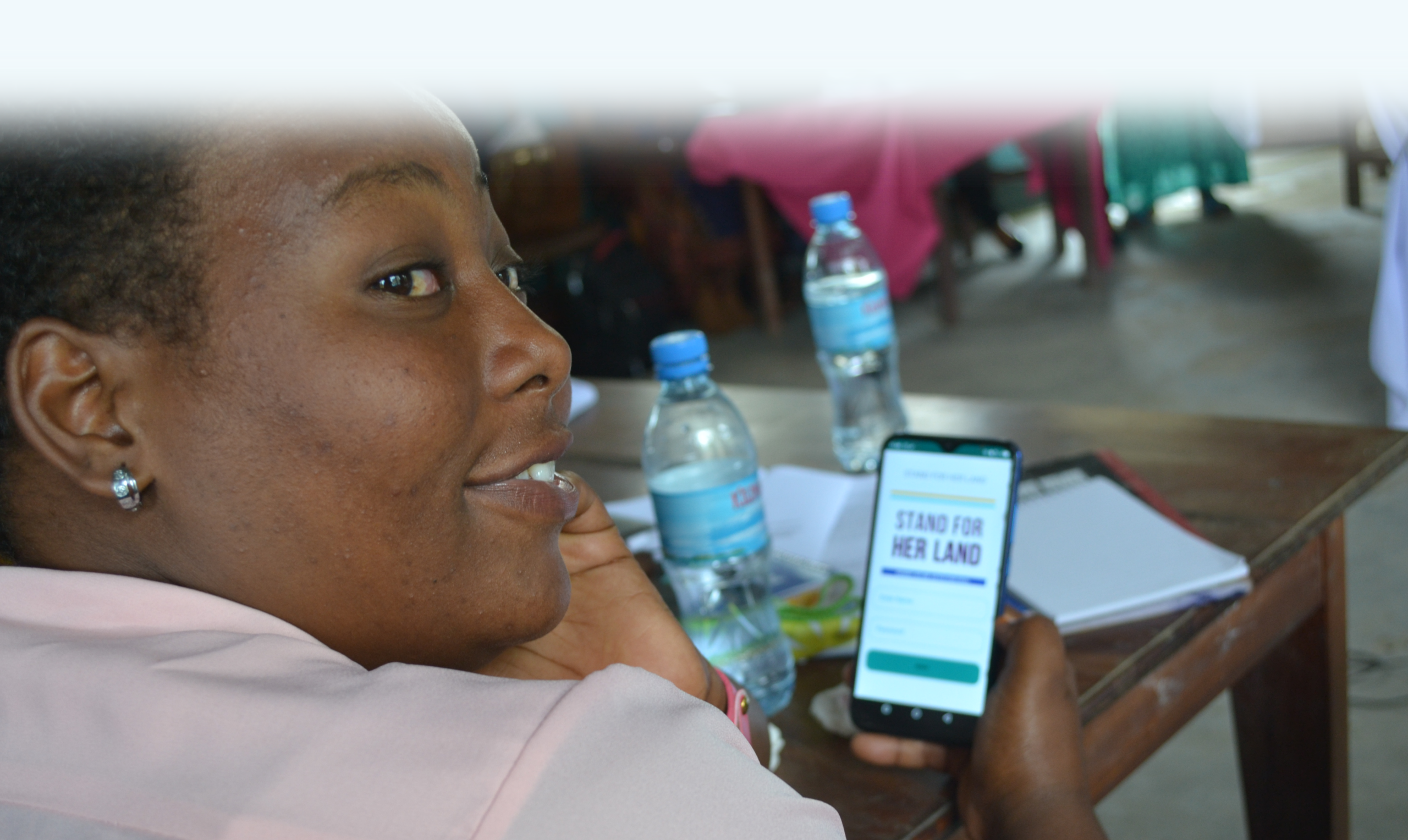Dr. Monica Magoke-Mhoja
Tanzania

Dr. Monica Magoke-Mhoja used her Bertha Challenge Fellowship to pilot a new module on a mobile app called Law in Your Palm for activists and paralegals training women on land rights in Tanzania.
“Without land, to build or maintain a home, to farm or to leverage for economic gain, or to inherit from a relative and use as her own, women’s security, prosperity and dignity remains compromised.”
Dr. Monica Magoke-Mhoja, Landesa
Despite having some of the most progressive legislation in East Africa, in Tanzania a small percentage of land is owned by women. Dr. Monica Magoke-Mhoja’s Bertha Challenge project addressed the cultural and social barriers that prevent women, particularly those in rural areas, from owning land. Monica is Landesa’s program director in Tanzania, and the founder of the Women’s Legal Aid Center. Having worked on women’s rights programs for over 25 years, she applied for a Bertha Challenge Fellowship to pilot an original new module – called Mwanamke na Ardhi (Women and Land) – for an app called Law on Your Palm that provides women living in remote areas with legal advice about their land rights.
During her Fellowship year, Monica trained 20 community paralegals to use the module, empowering them to provide legal advice to more than 300 women while also recording data and case studies on the obstacles women face to rightful land ownership.
When the Covid-19 pandemic hit Tanzania, Monica realized the potential of the app as a communication tool. At a time of confusion and anxiety, she and her legal colleagues at Sheria Kiganjani applied for and were awarded funds from Bertha’s Covid-19 Emergency Fund to quickly adapt the app to send key health messages to rural communities.

Following the success of the pilot during her Bertha Challenge year, Monica has applied for funding to expand the project’s outreach to other parts of Tanzania. Over the next year, Monica will train 30 paralegals in two new districts. Held at regional Legal Aid Centers, these will be designed as “training of trainer” workshops, and the 30 paralegals will be supported to train others in their locality.
Feedback from community paralegals trained during the Bertha Challenge has helped inform and improve the direction of the project’s next steps. During the workshops it became apparent that community paralegals had different levels of knowledge about legal definitions of marriage and how this affects a woman’s right to inherit. Monica has now designed an additional module that speaks to questions on marriage, aiming to increase paralegal and community knowledge to further support women’s rights to inherit land.
Using the data collected during her Bertha Challenge year, Monica identified that widows are the most vulnerable group of women when it comes to securing inheritance rights. As the project enters its next phase, community paralegals will be encouraged to target widows strategically in the areas where they’re working. Crucially, widows will also be provided with advice on how to make their land productive.
Monica hopes that eventually Women and Land will be adapted for other communities around the world.
“More than securing widows’ rights to land, we are empowering them to use the land – to make it valuable.”
Dr. Monica Magoke-Mhoja, Landesa

CREDITS
Photo 1: Ward executive officer from Chamgoi Village, Tanzania, talking to other participants about the Women and Land app segment at a training workshop. Image: Mudy Ashmaq, volunteer from MoMEC Centre Dar es Salaam
Photo 2: Ward executive officer from Chamgoi Village, Tanzania, using the Women and Land app segment at a training workshop. Image: Mudy Ashmaq, volunteer from MoMEC Centre Dar es Salaam
Authors: The Bertha Challenge Team
Editorial Consultant: Karen Frances Eng
This story was originally published in the Bertha Fellows book and some of the information in this story may have changed since it was first published.


 Built with Shorthand
Built with Shorthand